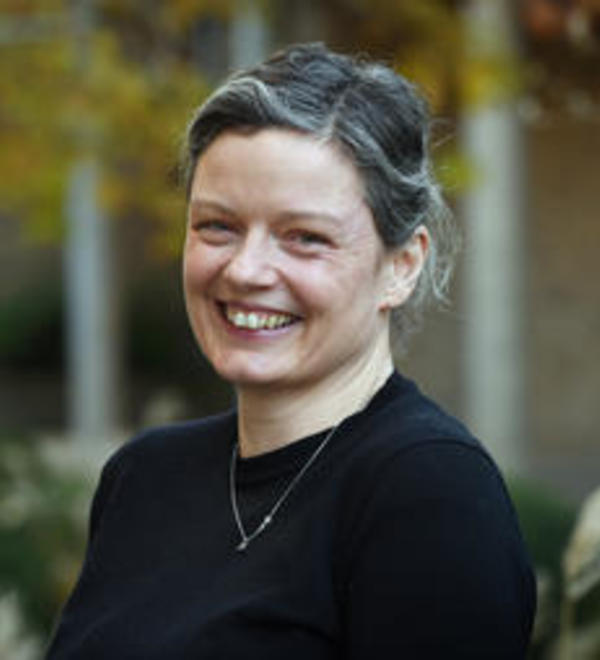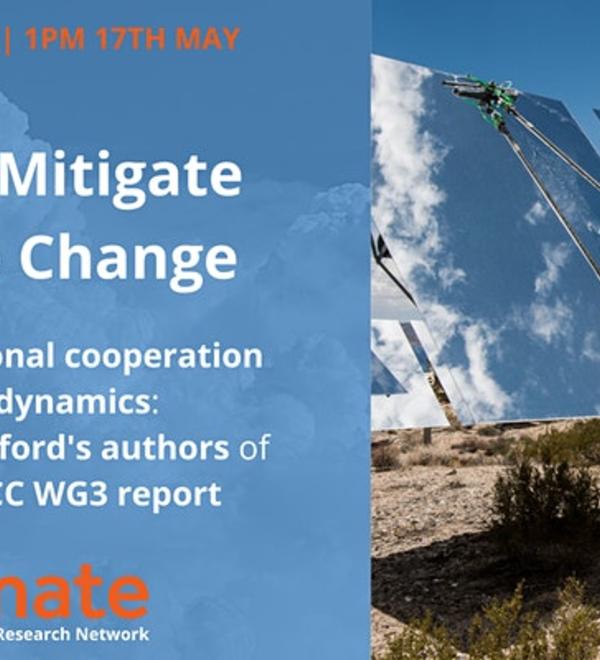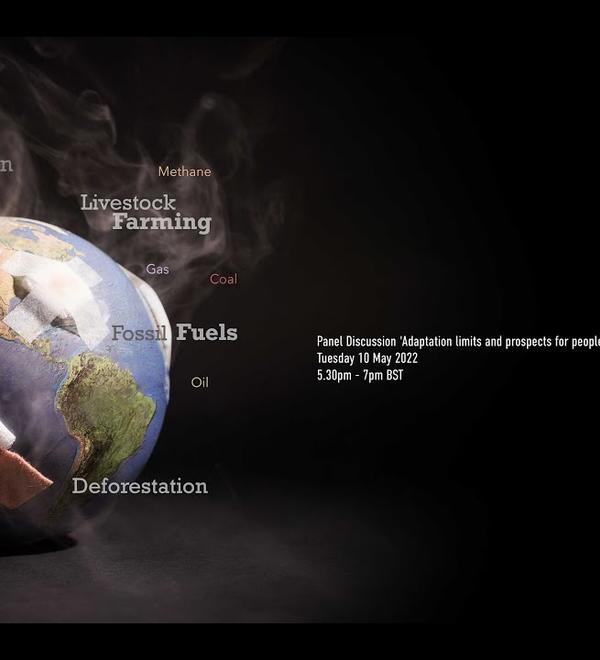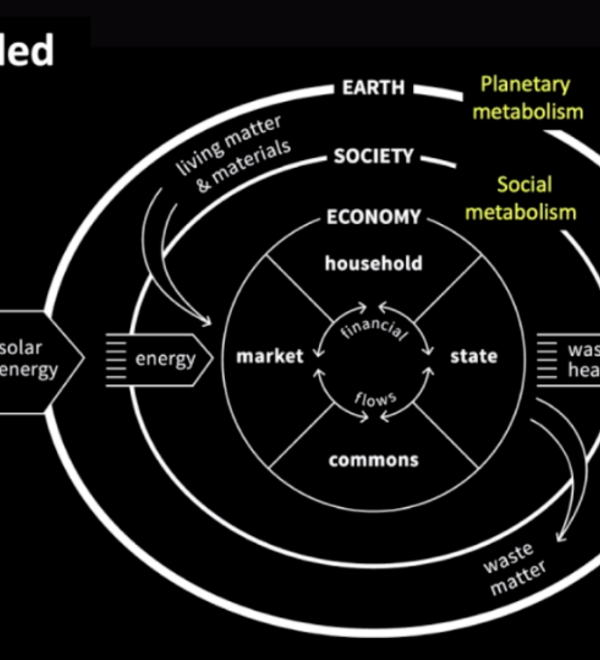Oxford Climate Summer Roundup 2024
Highlights from Oxford University’s climate research activities and events, June - August 2024
Welcome to the OCRN summer roundup. It's been a busy few months for Oxford’s climate research community, packed with talks, international conferences, and publications, against the backdrop of record-breaking heat, a new UK Government, and elections across the world.
The highlights below are a small snapshot of Oxford University's climate activities between June and August 2024. More Oxford climate news can be found here, and across the departmental webpages.
The Bonn talks
For some Oxford climate researchers, June began with a trip to the annual United Nations Climate Change Conference in Bonn. Picking up on unresolved discussions from COP28, a key issue was international carbon markets, in relation to Article 6 of the Paris Agreement. Oxford Research Associate in Net Zero Offsetting Injy Johnstone summarises the Article 6 negotiations here. She writes that “despite several bottlenecks that emerged in Bonn, there were also a few breakthroughs”, including "ruling out emission avoidance projects in both Article 6.2 and 6.4".
Photo: UN Climate Change / Amira Grotendiek
Removing CO2
Early June also saw the release of the 2nd edition of The State of Carbon Dioxide Removal report, an international collaboration led by Associate Professor Steve Smith and the Smith School of Enterprise and the Environment. You can read coverage of the report in Scientific American and Carbon Brief, and the launch event is available online.
Following the report’s launch, the discussions continued as hundreds of researchers, policymakers and businesses gathered in Oxford’s Mathematical Institute to explore all aspects of Carbon Dioxide Removal, from the social to the scientific, at the 3rd International Conference on Negative CO2 Emissions hosted by CO2RE.
Centring Nature
Meanwhile, just across town at the Oxford University Museum of Natural History, the Nature-based Solutions Conference brought together over 800 participants for discussions on science, research, policy, and practice, as well as artistic and cultural offerings, pushing forward the conversation on nature-based solutions to the climate and biodiversity crises.
Talks and Panels
The intersections of arts, culture and the climate crisis were also explored by the Climate Crisis Thinking in the Humanities and Social Sciences network in their event, Tagaloa X Tangaroa: Pasifika Popular Music and Climate Justice, co-hosted with TORCH. This was just one of the many climate-themed talks in Oxford this summer. Several talks are still available to watch online, including Inventing a Sustainable Political Economy for the Climate Crisis with ecological economist Kate Rayworth (Doughnut Economics) and best-selling author Kim Stanley Robinson (Ministry for the Future). Also available for online viewing is Elections 2024: New Routes to Climate Resillience?, a panel discussion from July exploring the implications of the UK General Election result and upcoming elections across the globe.
London Climate Action Week
In late June, Oxford climate researchers also contributed to London Climate Action Week. Among Oxford’s representatives were Associate Professor Steve Smith who appeared on a panel about MRV (Measurement, Reporting and Verification) for Carbon Dioxide Removal, and Dr Matilda Becker who spoke about London’s potential as a centre for the net zero global economy. You can read Dr Becker’s key takeaways from the panel discussion here.
Exploring Climate Change and Health
On the 24th of June, the Oxford Global Health Society held its inaugural conference, exploring the theme of climate change and health, led by DPhil candidate and society president Francis Ayomoh. The conference brought together the University’s health community with experts from across the UK to explore a range of topics, from how to prepare for emerging health threats from climate change, to policies for reducing the impact of health systems on the environment. Media coverage of the conference can be found here.
Photo: courtesy of Francis Ayomoh. Attendees at the Oxford Global Health Society's inaugural conference on climate and health.
Collaborating with Berlin
In July, the 3rd Annual Symposium of the Oxford Berlin partnership took place at the Humbolt Forum in Berlin, exploring the theme of “futures - new knowledge for a complex world”. Oxford ZERO Institute Director Professor Paul Shearing and Associate Professor Radhika Khosla participated in a panel discussion on “Challenges in the European Energy System/Markets, and Lessons for the World”.
Photo: Peter Neubauer. The Energy Systems panel at the Oxford Berlin partnership symposium.
Research News
In addition to a summer packed with conferences and meetings, the Oxford climate community has continued to produce and publish cutting edge research. Research outputs this summer have included an analysis of 1,500 climate policies published in Science with an accompanying dashboard for policymakers, a call for innovation in climate standards published in Carbon Management, the results of the biggest ever standalone survey on climate change in partnership with the UN Development Programme, and a breakthrough in solar energy technology from Oxford Physicists. A full list of climate research publications from Oxford University researchers can be found here.
UN Net Zero Taskforce
Other significant announcements included the appointment of Associate Professors Thomas Hale and Thom Wetzer (Directors of Oxford’s Net Zero Regulation and Policy Hub) to the Taskforce on Net Zero Policy, which provides research and support to the UN Secretary General's High-Level Expert Group (HLEG) on the Net Zero Commitments of Non-State Entities.
Our Network
Finally, we rounded off the academic year with the annual Oxford Climate Research Network Summer Social in the gardens at Kellogg College – a chance for our research community to catch up, network, and find connections across subject boundaries.
If you’re an Oxford researcher with an interest in climate and would like to hear more about opportunities and events, please sign up to the network via our Get Involved page. If you are external to Oxford and would like to get in touch with the network, please email us at ocrn@earth.ox.ac.uk. We welcome enquiries from policymakers and the media.
For more Oxford climate stories, you can view the Oxford climate news collection here.
Authors
Spotlight on SB60: the UN Climate Conference in Bonn
The two week-long meeting in Bonn is an annual event which examines progress on goals from the previous COP summits and lays the foundations for the next one. This year climate finance for developing countries was high on the agenda, but limited progress was made towards agreement on a New Collective Quantified Goal (NCQG) ahead of COP29 in November.
Photo: UN Climate Change / Amira Grotendiek
We spoke to Shivaun Chandiramani, a lawyer studying the MSc in Sustainability, Enterprise & the Environment at Oxford who attended the Bonn climate meetings.
“The Bonn conference is not meant to be groundbreaking. It’s not the forum where the main decisions are taken. But it is very necessary for doing the groundwork in the lead up to the COPs and it provides a space for parties to… set out the rules and modalities on which they will discuss things at COP. So when they go into COP they already know the parameters of what they can discuss and decide, and that makes it easier to progress”, Shivaun told us.
Photo: UN Climate Change / Amira Grotendiek
Shivaun attended the Bonn conference in two roles: as a researcher for her Master’s thesis on climate litigation and loss and damage, and as part of the Legal Response Initiative, a group of lawyers who help developing countries with legal queries during the negotiations. This support is increasingly important because “over the years, the agenda has just gotten more and more complicated and so capacity has to be added”, Shivaun told us. She feels participation in negotiations isn’t equal for all parties involved, with language barriers, knowledge gaps and high attrition rates in developing country delegations being ongoing issues.
But Shivaun sees the inclusion of groups like YOUNGO (the children and youth constituency of the UNFCCC) as a positive step, even if the scale of their influence is limited by their observer status.
What gives her hope in her work? Young people, their confidence, and their presence on panels and as negotiators. “It reflects the seriousness and urgency of the crisis we’re in… if all these young people who I see and meet at these conferences are going to be the ones making decisions in the next decade or so, then hopefully we will be in a better place”.









